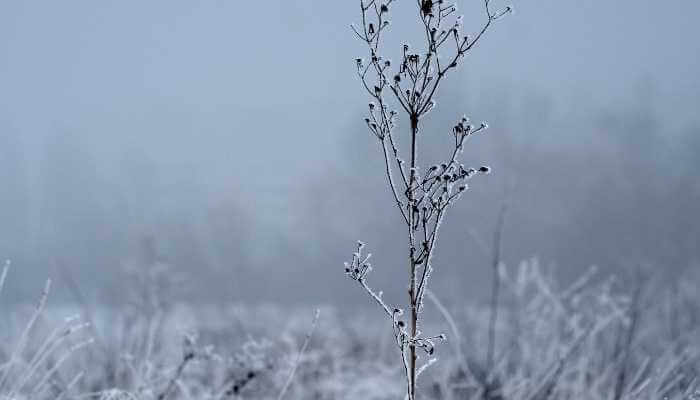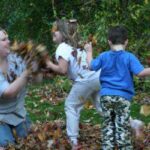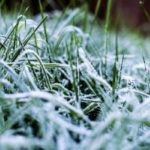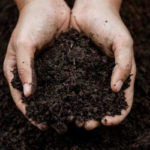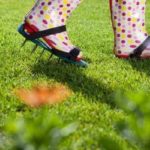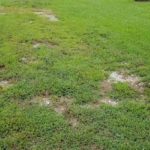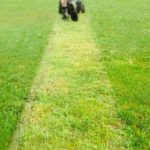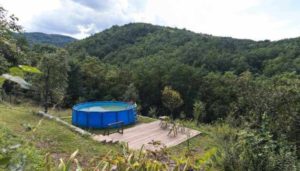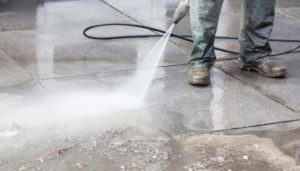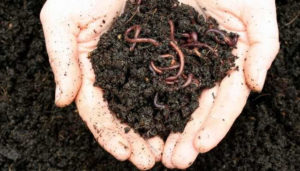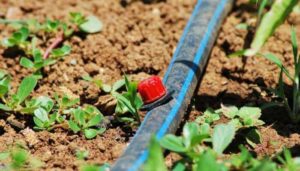So, what exactly are weeds? Well, in the simplest of terms, a weed is a plant that’s growing where it’s not wanted. Some people say it’s an “undesirable” plant. I like the thorny weeds out front because they make lovely fluted blue blooms that some hummingbirds like. But otherwise, yeah… they’re still weeds because they infiltrate the flower beds. But…do they ever die?
Yes, some weeds die during the winter if they are annuals. If they are perennials, they usually go dormant, so they look like they’re dead, but they’re not really dead. They just aren’t photosynthesizing as much because it’s the season with less sunlight and warmth.
Keeping in mind that the seasons differ from place to place and intensity, I’m just going to refer to winter as the cold season, mostly. Remember that what I write here may not reflect the seasons and weather where you live, so be sure to do some further research.
Annuals Vs Perennials
Perennial plants regrow every warm season whereas annuals die off at the end of the growing season, usually leaving seeds behind. So, even though annuals die, they leave those seeds behind and those seeds can germinate and you may have some of that plant growing in the same areas the next spring.
Perennials, if treated well, will either keep growing in warmer climates for winter or go dormant until the weather allows them to spring back up.
Weeds can be perennials or annuals and that affects what happens to them during winter. Obviously, annuals die during the colder seasons. If a weed is a perennial, it will usually go dormant during the winter and continue growing come spring or warmer weather with more sunlight.
You should consider heartier weeds that thrive in winter. Several examples are crabgrass, henbit, winter wheat, chickweed, prickly lettuce, bittercress, dead nettle, and annual bluegrass.
There are also perennial weeds that will remain but are usually dormant in winter: dandelions, clover, and thistle, for instance.
What Do You Do With Weeds in the Winter?
To be sure to control weeds in the winter so they don’t become a burden by spring, you really need to begin preventative measures as soon as fall. But there are two kinds of prevention to manage before considering professional services.
Manual Prevention
Manual prevention is actually going out there, finding the weeds, and trying your best to uproot them and get them out of your yard. If you pull them before winter, it’s easier to get the root out. Also, that keeps them from continuing to grow and leaving their seeds all over the place come spring.
Wait until after frost but during the warmer time of day. Why? Because once the rest of your grass goes dormant, it’ll be easier to pick out the green of the weeds. And if you wait until it’s warm, the roots should be easier to remove from the soil as compared to frozen soil.
Chemical Prevention
If you want to go with chemicals to prevent weeds, consider handling this twice per year. Use what is called pre-emergent herbicide geared toward killing and preventing weeds. You should use some in the fall to stop winter annuals from popping up. You should then use some in spring to prevent summer annuals from returning.
To kill the perennials, most landscapers suggest weed-killing spray and manual removal. The temperature needs to be at least 40°F or 4°C to get the most out of any spray-on herbicide. It’s best to use herbicides made for broadleaf plants like dandelions and clover. The formula gets absorbed into the leaf and kills the root. It also shouldn’t harm your grass.
Professional Weed-Killing Services
Yes, it will cost more money to hire professionals than to handle things yourself. But once you translate time into money and also the cost of supplies, you might decide that hiring professionals is worth your while. They know what they are doing and if they’re licensed and insured, that usually means there is a guarantee involved.
If you want to handle everything yourself, it can be an acceptable excuse to spend time outdoors. I know that even cutting grass for me is an escape. I listen to music and just get into the groove. I do the same when weeding. And if the weed issues you have aren’t overwhelming, why not?
In Conclusion
Don’t let weeds annoy you. Unless you’re forced to maintain a perfect yard by HOA guidelines or want to win some sort of lawn contest, it’s not worth getting upset over. Pulling weeds can be calming and meditative. And sometimes, you may not even want to pull weeds if they have a use.
Some weeds are actually very important and helpful. Clover blooms are important to our bee population and help with honey. The prickly things on my front lawn actually make lovely blooms that feed many pollinators.
A lot of vining weeds feed butterflies, bees, and hummingbirds. They can be ornamental, not just a weed. You should just keep them controlled.
And if you lose a bit of control, just tell your neighbors you’re feeding the bees and being environmentally responsible. It’s all good.
